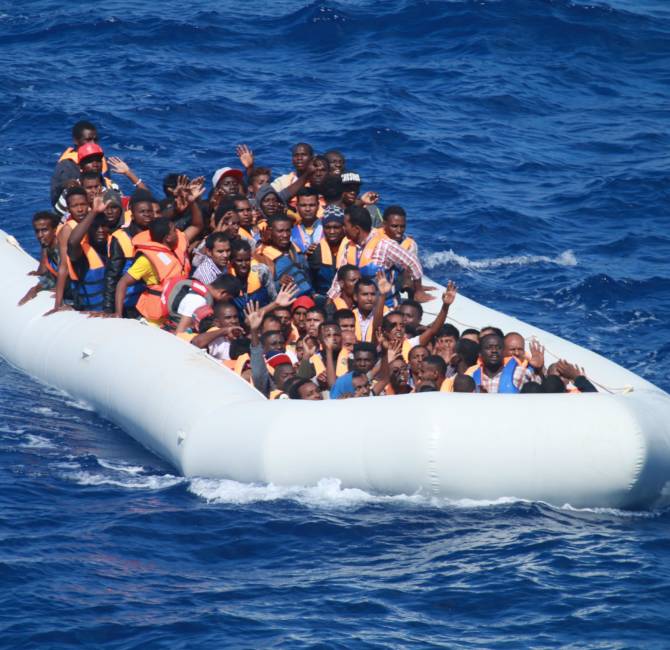By Modeste Schwartz.
Romania – On July 9, 2018, the Romanian parliament wrote the final chapter of an energy drama that had remained relatively unseen for a long time, finally breaking out only a few weeks ago – though it had probably been overdetermining foreign (and, in some cases, domestic) policies of the states of the region for months.
Meeting in extraordinary session, the Romanian parliament has indeed finally adopted that famous “offshore law” (needed to create the regulatory framework for mining activities in Romanian territorial waters – a framework which up until now the Romanian legislation did not provide) Hungarian Foreign Minister Péter Szijjártó had complained about during his official visit to Washington ten days earlier, when he criticized Romania for not moving fast enough on this issue.
These statements by the head of the Hungarian diplomacy had triggered a fit of raging hysteria in the entire Romanian “Euro-Atlantic” press – voice of the Romanian deep state, also known as the “Binomial” – which, after decades of complicit silence on the looting of Romanian natural resources by Western multinationals, suddenly discovered their true patriotic self to accuse Hungary of economic imperialism and interference, and Dragnea of being about to give up the gold of the Black Sea to the Hungarians for a dish of lentils. These inflammatory reactions, coming from journalists known to be in cahoots with frequent guests of the US embassy in Bucharest, lacked a bit of credibility, since the only interference that Szijjártó was actually likely to be encouraging in Washington was precisely … the American interference, which has been a daily reality for decades and has never up until now caused any of those journalists to complain about it. Moreover, most of those reactions were characterized by a tone of vulgar anti-Hungarian chauvinism, which assists greatly in identifying their true source, since the promotion of such ethnic resentment has become a veritable hallmark of the professional propagandists hired by the Romanian Information Service (in Romanian: SRI – to mention only the biggest visible block from the nebula of Romanian “secret services”).
This press campaign was, moreover, unclear on the exact causes of this great patriotic anger: besides the – indeed vital – issue of the quantum of the mining royalties due to the Romanian state (generally minimal, as in most Third World countries – since this is the “elite club” Romania joined after 1990), some forums also openly criticized Dragnea for having endorsed the revised BRU variant of the BRUA agreement; the disappearance of the “A” originally present in the initials (« Bulgaria-Romania-hUngary-Austria ») signifies the exclusion of Austria, that is to say the fact that the terminus of the conduct must now officially be on Hungarian territory – a modification imposed by Hungary with a clear concern not to let the center of gravity of this new southeastern European geography of gas leave its territory. Yet, at an equal price, Romania could, in principle, only rejoice at seeing Romanian energy supply industries ever closer to its borders, rather than strengthen the economic domination of a Germanic world that hardly grants it anything but the worst of its transplantable sweat shops. As for the United States, they cannot but rejoice at seeing not only the V4 (four NATO members) getting closer to the proverbial “energy independence” (in short: no longer depending on Russian gas), but to see, moreover, their German industrial competitor deprived of this manna; after all, if the V4’s industry (and maybe also Romania’s – see below) manages to absorb this energy bonanza, Western Europe could be forced, if it persists in wanting to treat Russia as an enemy, to accept the US offer of liquefied gas produced by the North American fracking industry.
This battle was therefore an opportunity, not only to verify that the Binomial – despite the chauvinistic discourse it encourages internally – hardly cares at all for Romanian national interests, but also to identify its current patrons, which will obviously be more likely to be found in Berlin and Brussels than in Washington.
And this is the moment when Dragnea, who seemed to be caught between the V4’s hammer and the Binomial’s anvil, surprised everyone by means of a solution that seemed unlikely just a few days earlier, and bestows upon him, so to speak, the status of a national hero, while still satisfying a good part of the Hungarian demands. Zero-sum game? Not quite: the losers of this story are the big energy companies (with capital from America, Europe, Hungary … but also Russia!), which, according to the amendments he himself introduced in this law, will have to pay decent royalties (the level of which, moreover, has become revisable in the event of a return to high energy prices), and, most importantly, obligatorily destine 50% of the extracted gas to the Romanian internal market. Romania is thus potentially endowing – for zero dollar and zero cents – what could become the lever of its reindustrialization, by offsetting the recent increase of its wages (itself a creator of secondary economic activity) by an abundance of cheap energy, produced just a few miles away from the port of Constanţa (which only that old Schengen magic and the relentlessness of Dutch sabotage temporarily prevents from fulfilling its vocation as first European port). To achieve this, all Romania still has to do is to shake off the yoke of its gas leeches: E.on Rurhgas and Elf Aquitaine, current beneficiaries of a neocolonial monopoly-grabbing, shamelessly milking captive consumers all over Romania.
In doing so, Dragnea gave the opposition parties a wonderful opportunity to unmask their true nature as colonial auxiliaries, and they did not miss it: after their representatives (along the PSD’s, for sure) voted for the offshore law in the Senate (in a first version, still with ridiculously low royalties and no other strings attached for “investors”), Klaus Johannis’ PNL and progressive freshman USR abstained during the vote on the new version (which prescribes much higher royalties, etc.) in parliament, under the pretext of a “lack of transparency” (which, however, they had obviously failed to notice in the first version) – some even blaming Dragnea … for not prescribing even higher royalties! One wonders what proportion of their current electorate (already a demographic minority) will be willing to believe in the sincerity of this late bidding – and therefore, if these parties have not just spoiled their last (and already meager) chances of coming back to power during the 2019 presidential elections. According to recent declarations, at least some Brussels-savvy Romanian opinion leaders are already mourning the PNL.
As for the mining multinationals concerned by this law, they have, of course, immediately informed the Romanian authorities of their well-intentioned anxieties, fearing that this law “will discourage investment” – and, as sticks and stones break no bones, we will most probably see these very multinationals’ actions deny their own claims by rushing on the Black Sea reserves in the coming months. For now, technically, their last resort would be a blocking of the promulgation of the offshore law, which depends in part on the prerogatives of President Johannis, a notorious “ally” (to say the least) of the Binomial.
The latter, however, during that same, memorable day of July 9, a few hours before the vote on the offshore law, had announced having ratified (after a month of “reading”!) the decree of revocation of Laura Codruţa Kövesi, the controversial head of the anti-corruption prosecutor’s office, covered with European and Scandinavian medals, but hated by large sections of the Romanian public. After a month of unconstitutional procrastination, this ratification is a confession of weakness, since it seems to be the direct consequence of the impending launching by the PSD-ALDE parliamentary majority of an impeachment procedure against him in case he would have kept blocking the ratification. By blocking or delaying the ratification of the offshore law now, Johannis, adding a provocation to an admission of weakness, would probably embark on the path of impeachment (an adventure he seems to prefer to avoid for the time being).
Moreover, in the absence of any other legislative framework, the non-promulgation of this law would further paralyze the exploration and extraction works, i.e. those very investments that should not be “discouraged” in the parlance of multinational companies. Let’s bet that the increase in the royalty bill will not make anyone less profit-eager, and that the rush on the Pontic Gold – a frenzy already amply illustrated by the impatience of Peter Szijjártó – will not be interrupted for such a small difference. So, even assuming that Johannis would still want to game the constitution and jeopardize his last bits of popularity, he may well end up being told – by some of the richest of his own foreign friends – that too late means too late.
The most beautiful paradox of this story is that, in terms of image, this hardening of the tone of the Romanian public authorities vis-à-vis the foreign economic powers was made possible (or even necessary) precisely by the pseudo-patriotic press campaign launched by the Binomial, in fact against Hungary and in favor of Germanic interests – but relying mainly on the sledgehammer argument of “too low royalties” (no doubt based on the principle that Dragnea would never dare raising them). But lo and behold, Dragnea has called the Binomial’s bluff, and the “Romanian opposition” now finds itself in the awkward position of having to criticize “in the name of national interest” a universally applauded law, and having to de facto oppose “European energy independence” in media outlets that are generally busy maintaining the “Russian threat” obsession. Did Liviu Dragnea premeditate this trap, or did he just make the best possible use of the defect of the enemy’s armor as soon as he saw it? This is hard to tell. But in any case, his judo trick echoes that of Szijjártó himself, who managed to “sell” by means of a rhetoric apparently highly in line with NATO’s official discourse a project that penalizes Western Europe much more than Russia (which, through the capital of its gas giants, is also present on the mining field).
This outcome, and the clarifications that it makes possible regarding the Black Sea gas imbroglio, also help to understand the relentlessness shown by the Romanian deep state in its efforts to diplomatically drive a wedge between Bucharest and Budapest – a strategy of which the latest episode was the (largely abusive) incarceration of two pro-secession Szekler activists, “guilty” of having, years ago, planned an attempt of pseudo-attack with firecrackers (!) against the celebration of a Romanian national holiday in a Szekler town. Considering the dismissal of L. C. Kövesi, and the skillful pirouette by which L. Dragnea has just cut off the Pontic gas knot, it is not forbidden to think that MM. Beke and Szőcs, theoretically behind bars for another four years, now have a good chance of enjoying sunshine before the end of summer, and will most certainly be free in 2019 to celebrate Klaus Johannis’ announced defeat in the Romanian presidential elections.




